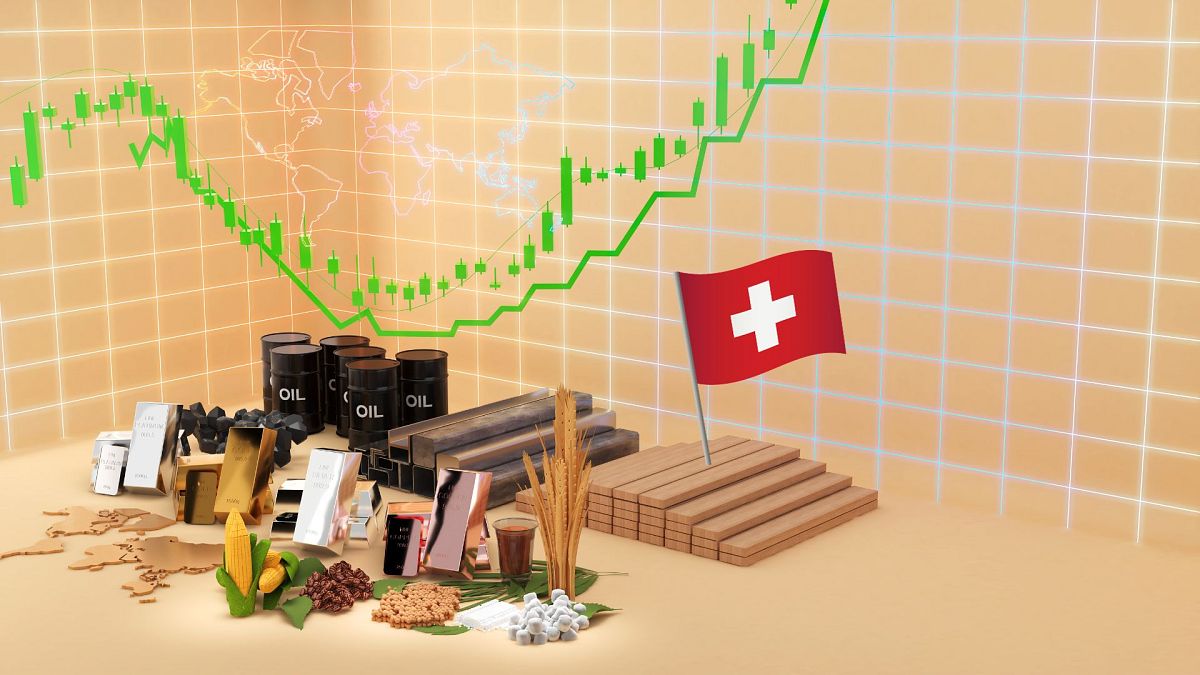Switzerland wants to take a closer look at its commodity trading and raw materials sector through the new figures.
The Swiss government wants to evaluate the share of commodities trading in its gross domestic product (GDP), it announced on Wednesday, as the country currently lacks the statistics to properly assess this part of its economy.
In the weeks following Russia's invasion of Ukraine, one of Switzerland's main difficulties was quantifying the sector's weight and its economic impact, when sanctions against Russia were being introduced.
"Despite the national and international importance of commodities trading in Switzerland, there is little information available in this field", Switzerland's Federal Council said in a press release.
Switzerland is one of the world's leading trading centres for raw materials. According to various studies, Swiss traders control a third of the world's crude oil trade, around two-thirds of the world's metals trade and 35% to 60% of the world's agricultural commodities trade, according to the press release.
"The need for more information is motivated by the sector's economic importance for both domestic and foreign policy," said the government, which commissioned the Federal Statistical Office to launch a data collection in June 2022.
"This interest predates Russia's aggression against Ukraine, but has become more acute since the beginning of the conflict", it added.
Numerous commodities companies with complex structures are based in Switzerland.
Among the largest is Glencore, incorporated in Jersey, but based in Baar, in the canton of Zug in central Switzerland. Gunvor is another, registered in Cyprus but with its main trading office in Geneva. Similarly, Trafigura is headquartered in Singapore but has a large part of its activities in Geneva.
The sector represents around 35,000 jobs in Switzerland, according to figures published by the Swiss Commodities Trading and Shipping Association.
Swiss NGOs routinely criticise the sector for its opacity, environmental damage and human rights abuses.
The Federal Council has asked the Federal Statistical Office to carry out an analysis of the sector's importance, by extending its current data to include all aspects of the industry, taking into account all companies employing at least three people, which represents around 400 companies.
The analysis will be conducted in 2024, 2025 and 2026.



